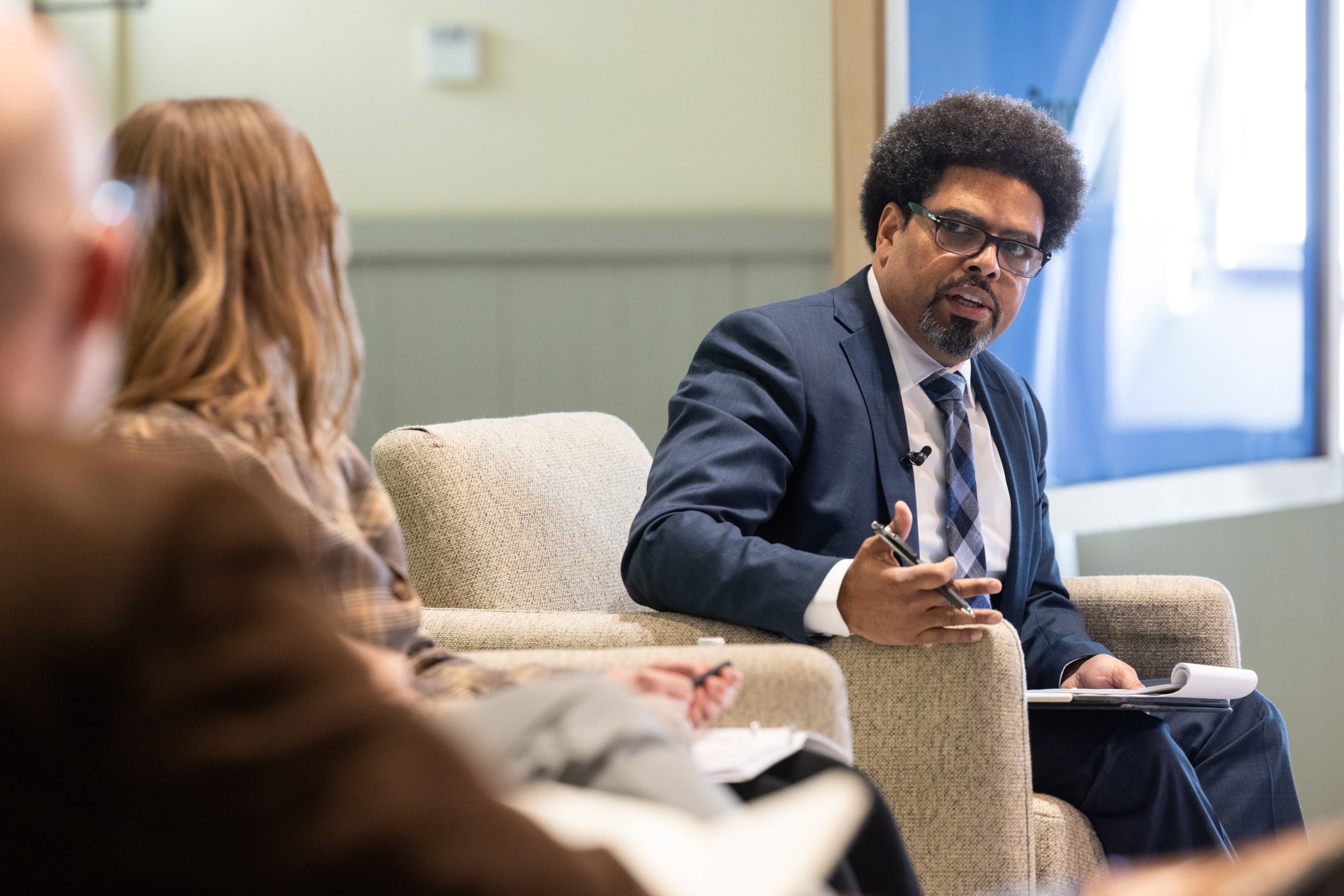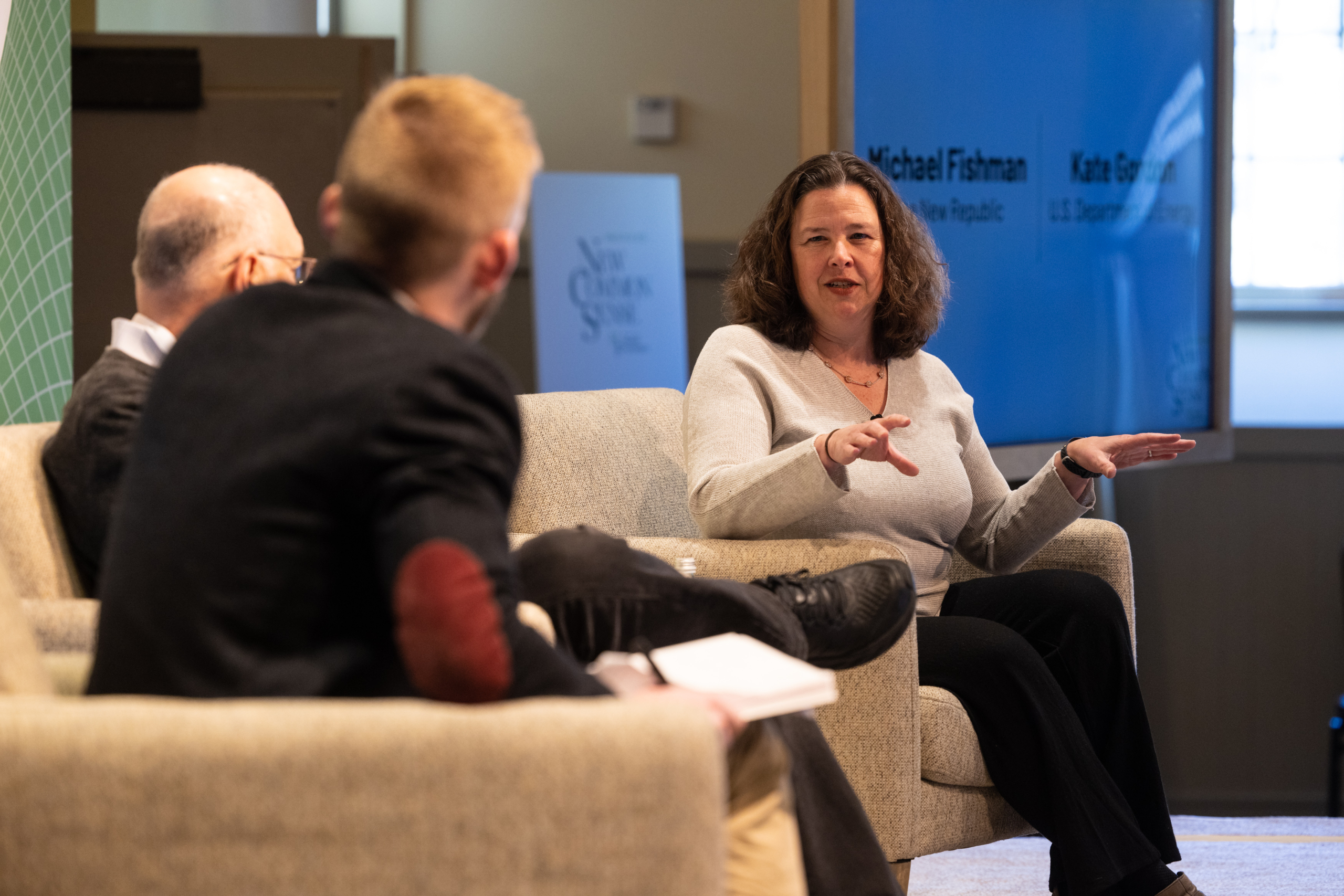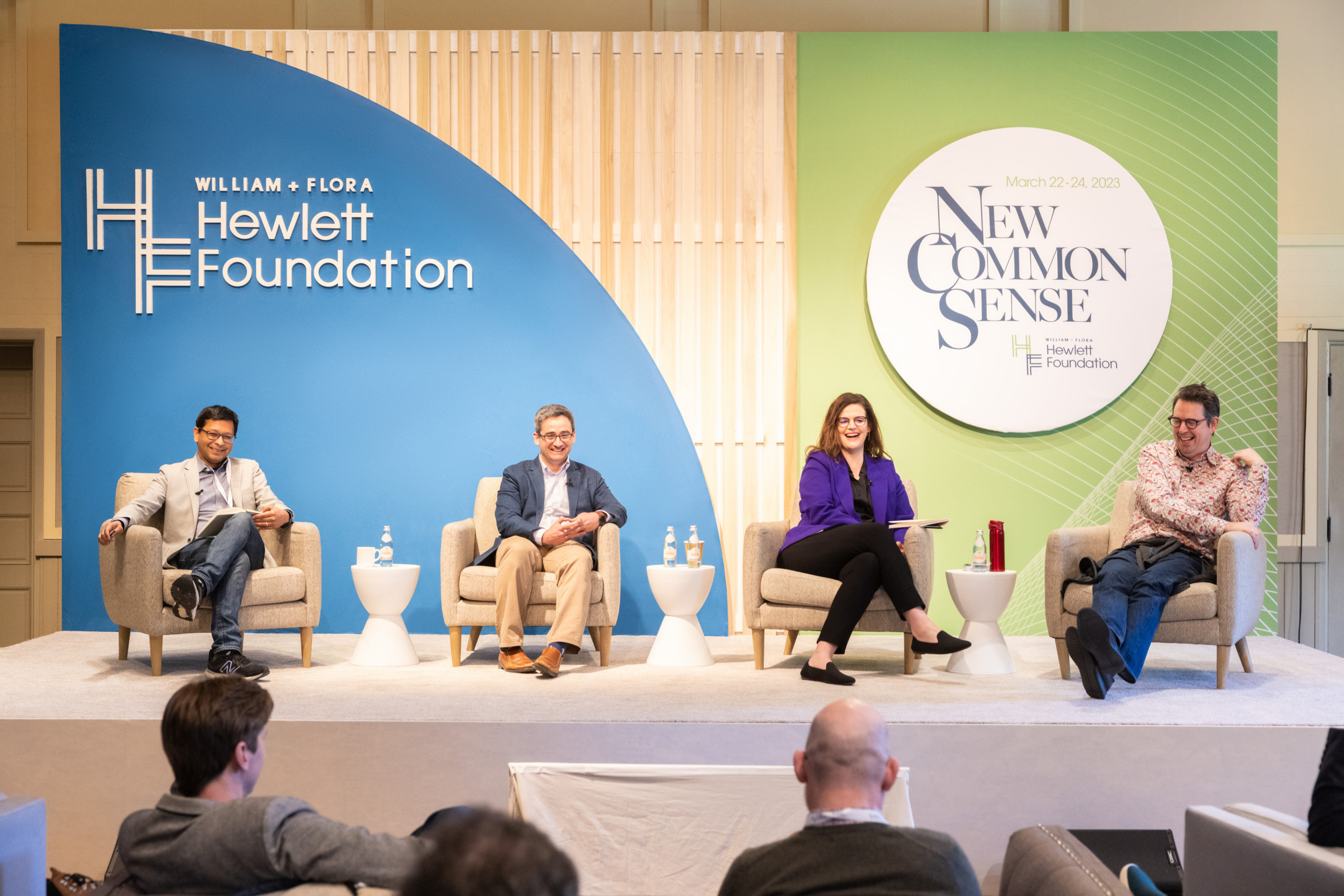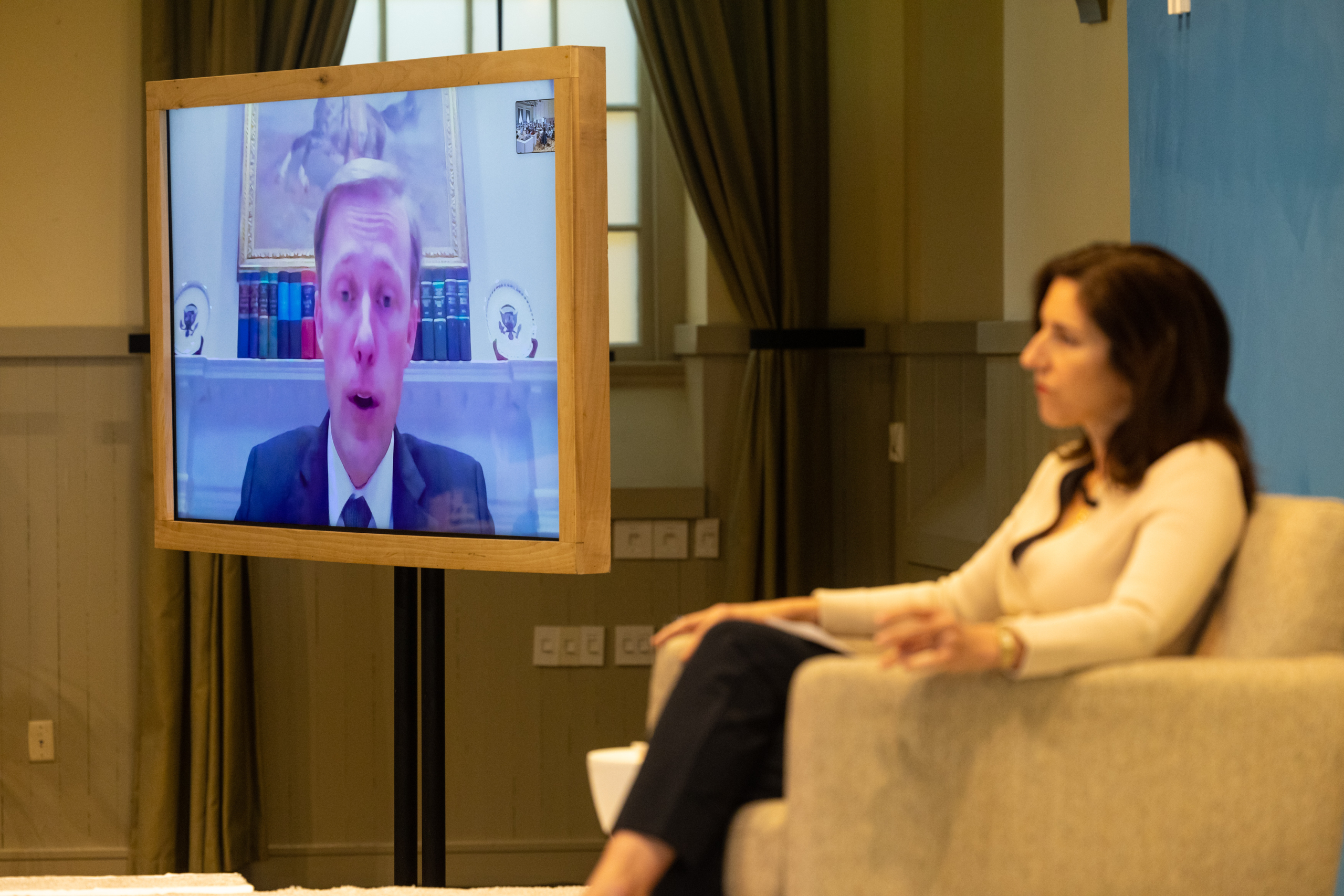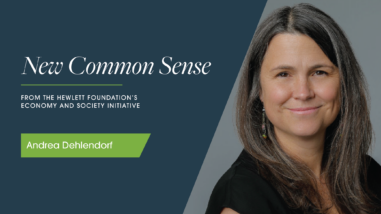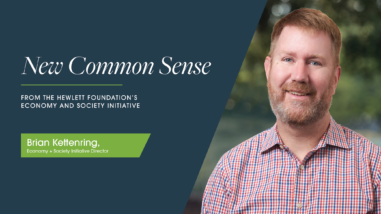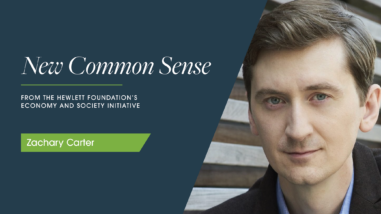From neoliberalism to new horizons: Themes from New Common Sense 2023
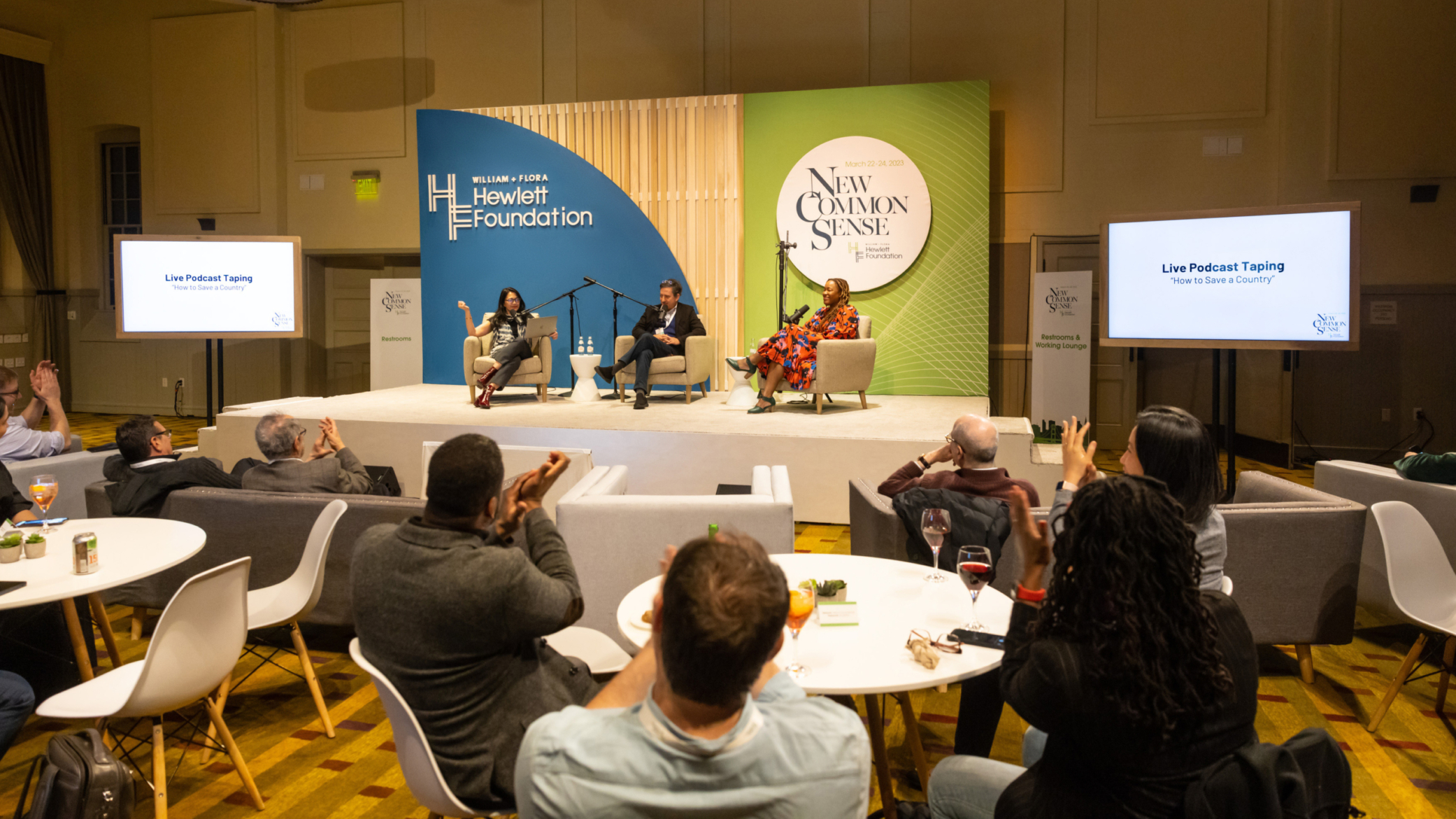
“It’s somewhat oxymoronic that we even have to say ‘moral economy.’ Perhaps we should begin with the question: What is the purpose of an economy? … And what if its purpose is to facilitate people to be their best selves, to be self-determining, to engage in the human ethic of contributing productively to your society in a community framework? I think we need to begin with a concept that we established with the U.N. Declaration of Human Rights, as far back as 1948, which is ‘economic rights.’ I would add the word inclusive economic rights, because we’ve also seen throughout history, if we aren’t intentional with regard to including certain marginalized groups — marginalized by their social identity, be it their gender, race, sexual orientation, or even, if we think in a macro perspective and in an international way, the Global South — then the default will be the structures that have been existing in the world, which, by design, manages and implements policies that are racist.”
— Darrick Hamilton, The New School
“There are security imperatives, geopolitical imperatives, economic imperatives, fairness imperatives. All of these things are driving the same shift, toward a more sustainable and resilient and equitable economy. So we have an opportunity and an imperative to rethink our industrial economy right now. That has to be done in a way that addresses climate change because, (a) the climate is making the way we do business impossible. So that’s just not going to work anymore. And (b) it’s going to undermine all of our future economic growth if we don’t. So we have to do it. There’s a million reasons to do it. This is yet another one. It’s my call to action to this group, why we can’t keep talking about climate as if it’s sort of over there, just an environmental regulatory agenda, while everything else is about the economy and growth. This whole conversation is one conversation. This is yet another set of allies to bring in for this shift.”
— Kate Gordon, Department of Energy
“So much of what we’ve heard the last couple of days really highlights a number of different moral suppositions or values about what we’re trying to do. One is really centering the idea of human and collective flourishing. What are the things that people in communities need to thrive? … A second is an attentiveness to power imbalances. So who are the actors? The institutions, the systems, that are actively inhibiting that ability to flourish? … There’s another underlying one, which is democracy. By that, I mean our collective ability to make the political economy work for us so we don’t serve the market. The market is a creature of what we collectively decide and authorize through law. And we should build a market economy that works for those human values.”
— K. Sabeel Rahman, Brooklyn Law School
“[We face] the challenge of inequality, the challenge of ensuring that the gains that flow from global growth actually reach working people, middle class people here in the United States. And from my perspective, that has to be a national security priority, as well as a domestic economic priority, because the American middle class is the foundation of our capacity to project strength in the world, just as it is fundamental to the sustaining of our economy, our society and our democracy at home.”
— Jake Sullivan, National Security Advisor to President Biden

